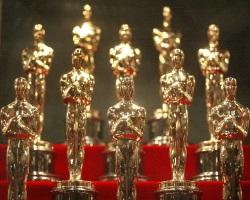However, choosing the best is always controversial business. This year, for the second straight Oscars, all the acting nominees are white, despite great performances by Will Smith, Idris Elba and others. Twitter has been awash with the hashtag #OscarsSoWhite, and several prominent black entertainers have decided to boycott the ceremony.
Spike Lee, a prominent African-American director, wrote on Instagram, “Dr. [Martin Luther] King said, ‘There comes a time when one must take a position that is neither safe, nor politic, nor popular, but he must take it because conscience tells him it’s right.'”
Yet Oscar snubs are hardly unusual. Citizen Kane, a 1941 movie that many film snobs say is the best American movie ever, was mostly overlooked by the Academy Awards, winning just one Oscar for Best Writing. Alfred Hitchcock, one of the most famous directors in history, never won a single Oscar.
When you look at the nominees of pretty much any year, the movies the Academy says are the best often don’t match up with what people pay to see. None of the year’s biggest hits were nominated for best picture, not Star Wars: The Force Awakens, not Inside Out, not Jurassic World. Literally 100 times more people apparently wanted to see Star Wars (which earned nearly $1 billion at theaters) than best picture nominee Room (which earned $10 million).
The truth is, deciding what’s best of almost anything can be difficult. You can time who’s the fastest runner or the highest jumper. You can look at statistics to learn who’s the best hitter in baseball—but the best food/singer/teacher are all subjective.
So if you watch the Oscars Feb. 28, and you hear people talking about a movie, performance or screenplay being the best, remember the best movie isn’t necessarily the one that wins the most trophies.
Talk About It
What would you say is the best movie you’ve seen this year? Why? Do you think it should have been nominated for an Oscar? Explain.
How important do you think awards such as the Oscars are? Have you ever won an award? Why did you deserve it? Have you ever been overlooked for an honor that you thought you deserved more than the person who received it? How hard was it to lose that honor?
A lot of times, our favorite things—movies, television shows, meals, etc.—are colored by very personal attachments we have to them. We might love Bambi because of who we were with when we saw it. We might love meatloaf because it reminds us of grandma. What things in your life do you love because of the people you associate with those things? A favorite book? TV show? Place?
Say you won an Oscar or another important award. Who would you thank? Who deserves credit for the person you are or the person you’d like to become?
What the Bible Says
“Do not withhold good from those to whom it is due when it is in your power to do it” (Prov. 3:27).
“Whatever you do, work heartily, as for the Lord and not for men” (Col. 3:23).
“Let love be genuine. Abhor what is evil; hold fast to what is good. Love one another with brotherly affection. Outdo one another in showing honor. Do not be slothful in zeal, be fervent in spirit, serve the Lord. Rejoice in hope, be patient in tribulation, be constant in prayer” (Rom. 12:9-12).
Paul Asay has written for Time, The Washington Post and Christianity Today. He writes about culture for Plugged In and has published several books, including his newest, Burning Bush 2.0 (Abingdon), available now. He lives in Colorado Springs. Check out his entertainment blog at Patheos.com/Blogs/WatchingGod or follow him on Twitter @AsayPaul.




